Reflections on a Residency
Julie Marie Myatt at South Coast Rep
Julie Marie Myatt was the Playwright-in-Residence at South Coast Repertory through the National Playwright Residency Program, funded by the Andrew W. Mellon Foundation. Find out more about her residency experience here and learn about the impact of the program at large here.
HowlRound is working with playwright residency sites around the country to track the impact of what it means to have a playwright on staff. At each of the fourteen theatres we have a Commons Producer—a theatre practitioner from the local community working with the theatre and the playwright to tell the story of each residency and make the learning from this experiment accessible as it's happening. Periodically we will post these residency updates on HowlRound in the hopes that it will be useful to field-wide learning on the question of what it means to employ playwrights inside of theatres.
Julie Marie Myatt's three-year Andrew W. Mellon Foundation Playwright Residency at South Coast Repertory has flown by for Julie, myself as the Commons Producer documenting her residency, and for SCR itself. During that time, she has written over six plays, attended artistic staff meetings, learned about SCR, and engaged audiences in a variety of creative ways. At the start of this year, Julie concluded her residency at SCR and this article summarizes her activities in this grand experiment that started in 2013.
We playwrights are like feral cats—how do we learn how to root ourselves?
SCR has a long history of investing in playwrights, but in recent years their commitment to new work has grown exponentially under the leadership of Artistic Director Marc Masterson. When I interviewed Marc regarding Julie’s residency, he shared,
In thinking about how the residency might work, it seemed important to find someone from this region and someone who we had a relationship with: Julie certainly fit both of those categories. I had been a fan of Julie’s work for a long time. She had a history here, two plays produced here. And I am always interested in helping to support playwrights.
How this specific residency might work seemed open to allow for discovery within this new role of a playwright in residence, but ultimately Marc noted, “The residency is to support [Julie], and that’s great.”
SCR also benefited from having an outside perspective on their work. Marc notes, “I thought it could be useful to have that voice of an independent artist in the room as we’re talking about the work we’re doing and that’s proven to be true. She has provided valuable perspective on our conversations.”
Julie’s first year primarily focused on establishing her new relationship with SCR and transitioning from being itinerate to being “in residence.” Julie reported after the first year: “Adjusting to a commute, a place to go, a cubicle, and community, has been both welcome and new. I feel I am still in many respects figuring out how to be ‘in residence’ and what exactly that means, and at the same time, how to continue to build or nurture a career as a playwright nationally.”
At our mid-residency Cohort Meeting, Julie still struggled with that question, inquiring of our speaker Todd London, “We [playwrights] are like feral cats—how do we learn how to root ourselves?” A portion of Todd’s response included, “It calls for a real change from the writers… it is about playwrights taking charge of their lives…”
Julie continually strove to find her place at SCR, participating within the organizational structure, engaging audience members in story circles (inspired by her work with Cornerstone Theater Company) and in the lobby with a “Tell A Playwright” sign, and leading the Playwrights Panel at the Pacific Playwrights Festival (in 2013, 2014, 2015). Her Playwrights Panel was a first for the Pacific Playwright Festival. She reports, “I felt it was important for audiences to be able to see and hear from the writers themselves in the festival; hear what inspired their plays, and learn a bit more about the writers themselves. I asked each of the writers to use the opportunity to engage each other with questions as well, and this proved to be a very dynamic, interesting panel and the playwrights really took the lead in expressing themselves about their work, and taking interest in each other.”
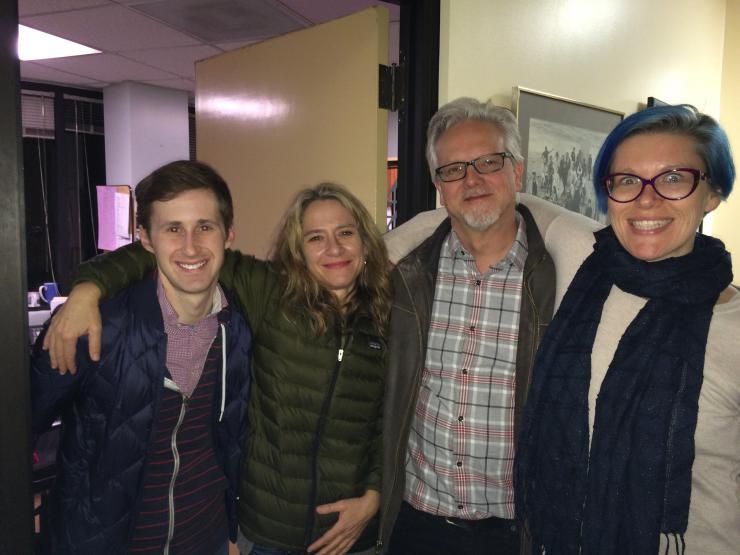
Inspired by the themes and questions of Julie’s Playwrights Panel, I wanted to ask a few questions of Julie at the end of her residency:
Joel: What are you writing currently? Why this play, now?
Julie: I just finished a couple of plays, actually. A play called Little Lamb, and a play called The Rescued that I wrote at Hedgebrook writing retreat this spring, and Found on Pandora Avenue that I just finished a first draft of for South Coast Rep. The Rescued is a play about incarceration and rehabilitation, using rescue animals. And Found on Pandora Avenue is a thriller based on the Pandora myth. I feel like so much of the world right now is a Pandora's box: technology, war, you name it. I'm getting ready to write a play for Cornerstone for their Hunger Cycle. It's about scarcity and abundance in LA. I'm excited about writing it, but it's also daunting. It kind of defines the entire LA landscape.
Joel: What do you see the role of the playwright to be today in the world?
Julie: To ask questions, constantly. To reflect back to audiences the world through a new lens. To be a good citizen through theatre.
Joel: Who do you write for?
Julie: I write for the (constant) unrest inside myself. Then where that unrest might live in an audience.
Joel: What sort of projects or plays interest you?
Julie: I find that the when I have a question about the world that continues to plague me with, “what the hell?” I want to write a play about it. I figure there are others who are struggling with the same question. Not that we will find the answers, but that the investigation with an audience is necessary and important, together.
Joel: What in the American Theatre is exciting to you right now?
Julie: Companies like Deaf West. I think they prove by example that diversity of experience of language and casting, can transform how we view the world together.
Transitioning out of this residency, Julie has accepted a teaching position at Northwestern University. She shares, “I am adjusting to the huge leap into teaching playwriting at Northwestern. It is a wonderful new change, and challenge, and I'm looking forward to the conversations with the students. I feel like I needed to make a shift to conversations about what theatre could be, rather than being stuck in old dynamics of conversations/complaints about what theatre is or isn't. There is great possibility here, and it came at a very welcome time in my life.”
“I look forward to how the next generation of young theatremakers will come forth with plays about American life. They were raised in, by, and surrounded by technology, yet theatre is asking them to slow down and talk to us. How will that play out on stage? I'm excited to see.”
As for the Playwright Residency program as a whole, it is thrilling that the Andrew W. Mellon Foundation continues to partner with HowlRound to continue the National Playwright Residency Program. The next round of three-year residencies start in July, 2016.

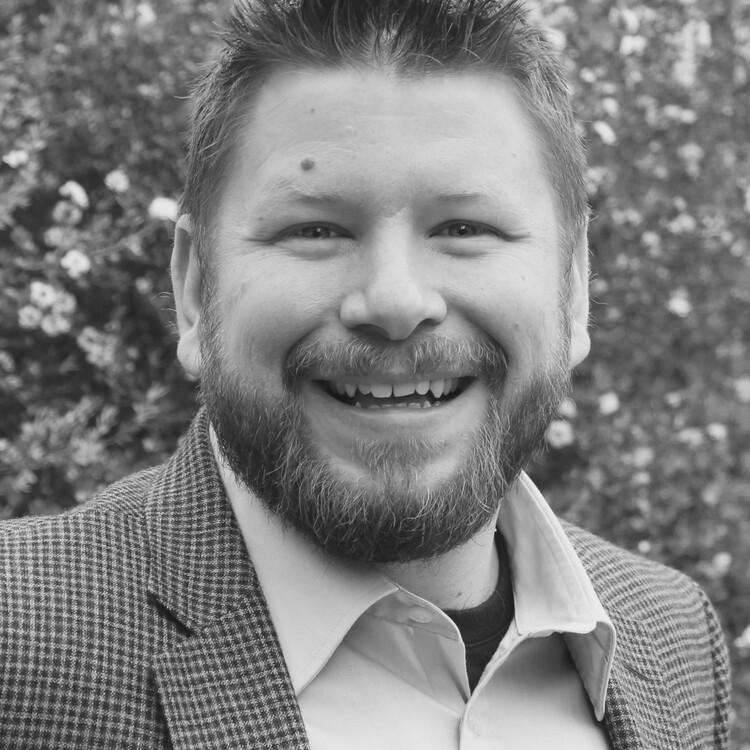
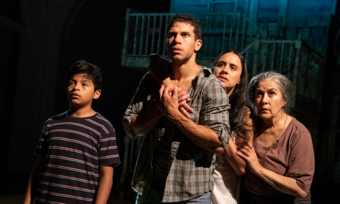


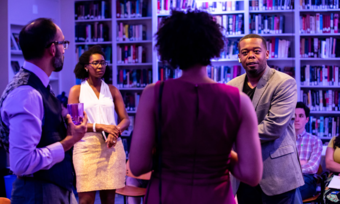


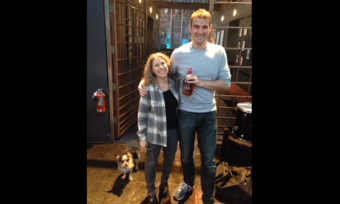

Comments
The article is just the start of the conversation—we want to know what you think about this subject, too! HowlRound is a space for knowledge-sharing, and we welcome spirited, thoughtful, and on-topic dialogue. Find our full comments policy here
What a thrilling dynamic for a theatre and its community to have,
essentially, an "embedded playwright". Clearly, the wonderful Julie
Marie Myatt has made the very most of her time at South Coast Rep,
giving back at least as much as she got. All praise to SCR and the Mellon
Foundation for their continuing support of new and brave American
writers.